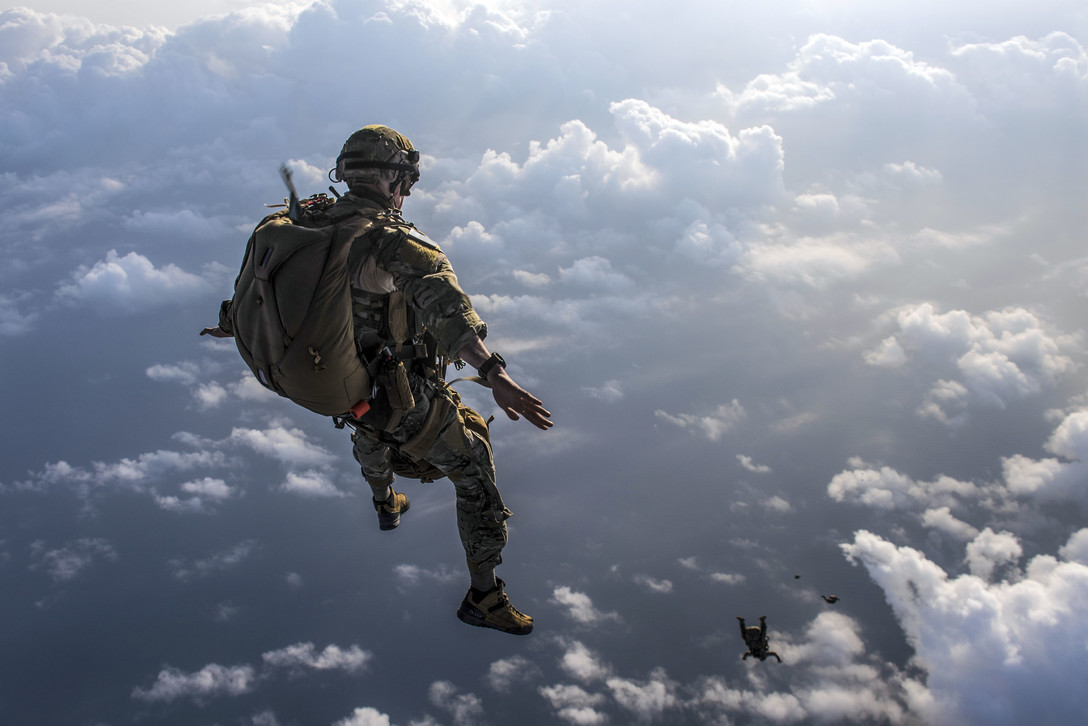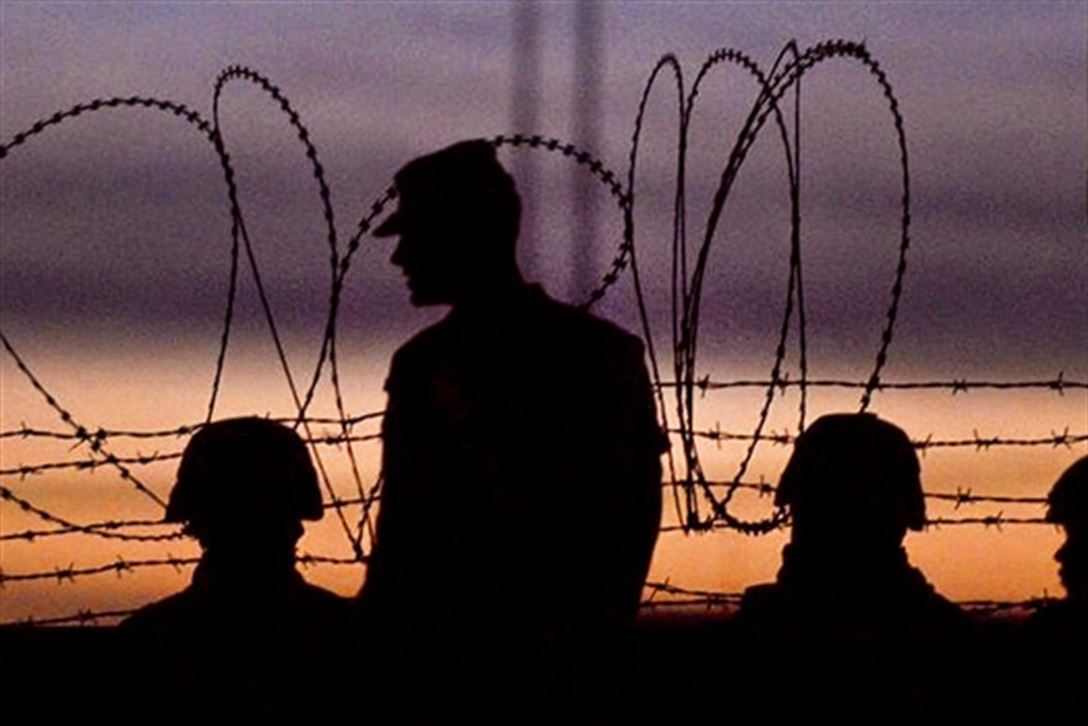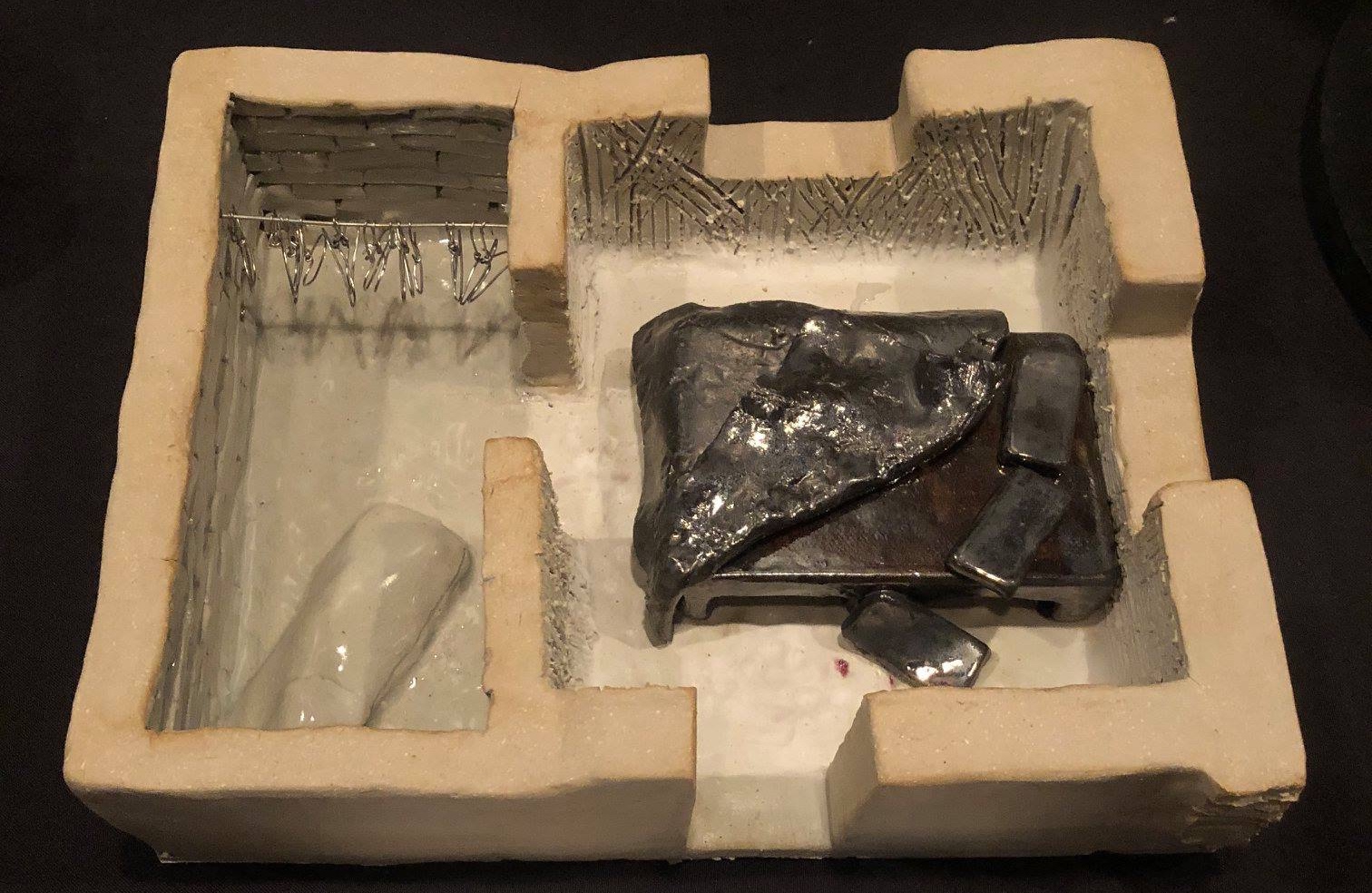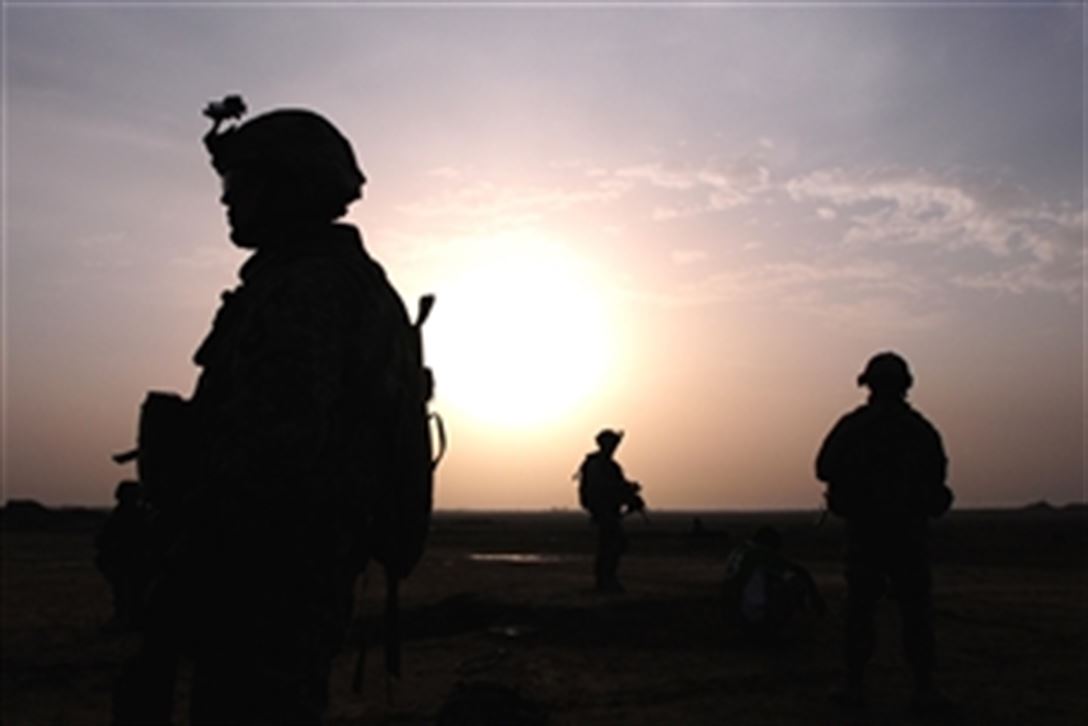
Soldiers are silhouetted in the early morning sun as they search a small village Tikrit, Iraq, Oct. 28, 2008.
A friend of mine, Special Operations Soldier, once told me: “It’s one thing to think that fear is weak, that suicide is the coward’s way out. I thought the same way, once. It’s totally different when it happens to you, and you know that you’re not a coward.”
When a service member or veteran starts to struggle, either when they’re in the military or long after they get out, there is a significant element of doubt and shame. The military is such a team-focused culture that, when you feel like you’re no longer part of the team, then you feel cut out. Isolated. Often, this isolation is self-imposed; we beat ourselves up worse than anyone else could possibly do it.
Fear is what you strike in the heart of other people…it is never something that is found in us. The challenge, of course, is that fear is a natural emotion that occurs in everyone. No matter how much we want to deny it, fear is there; many times, for a very good reason. Much of the problem with fear comes from the fact that many service members believe that the presence of fear makes them less than what they were, and the hardcore person they were starts to fade in the light of the person they see in the mirror. The person the service member sees in the mirror is inferior. Weak. Pitiful. If the person we see is a faded shadow of who we used to be, then we start to hate ourselves. And that’s when the problems start.
Service Members are Dependable…
One of the things that many service members and veterans pride themselves on is their dependability. They could be counted on…by their buddies, by their unit, by their nation. They look down on others in the military who don’t pull their weight, who can’t be counted on. The military is a talent-sucking organization; it disproportionately relies on those who drive harder, move faster, work longer and harder than others. They will be asked to drive even harder, move even faster, and work even longer and harder…and they do. It’s not because the unit leaders are sadistic. They, too, are often driven to move faster, work longer and harder by their superiors. And so it happens all the way up the line. The dependable rock of the unit is the one that everything is built on. Being that rock is a point of pride for many.
…Until They’re Not
Once, in Afghanistan, a soldier was coming off of an eight hour guard shift. Another element of his unit was out in sector, seven hours away; a unit leader told him and another soldier to get ready to go out. The soldier resisted, claiming safety and crew rest. The leader chewed him a new one, and even made sure to make sure the guy lost rank…what the leader didn’t know at the time, because the soldier didn’t say anything to anyone, was that he was struggling with a painkiller addiction at the time. He had just taken some painkillers, and knew that if he went out into sector, he would be putting more lives in danger…and the shame of it all crushed him.
The soldier was in pain, he was addicted, and he had just let his unit and his buddies down. He got busted in rank and gained a reputation of undependability…because of his secret.It wasn’t until years later that the soldier found the leader and told him what happened and why it happened…and that he had gotten help.
This story has probably been repeated over and over again. And continue to happen, until things get under control. When fear, anxiety, depression, any of these things start to develop in a service member or veteran, they feel like they’ve let themselves down. Their buddies. Their nation. They feel their former dependability start to fade…and they become less of who they were and don’t like who they are.
A Hard-Charging Service Member is Irreplaceable…
Another point of pride for many service members was the fact that they were the one who could be counted on. It’s not an ego thing, “look at me” kind of stuff. That’s what they’ve been told by their leadership. It’s what they’ve been told by their buddies. “We can’t let you go, you’re the key.” When the hard work needed to get done, when the mission needs to be accomplished, they were the once to get the call. And like the hardcore person they were, they got it done. The pride in a hard job well done is a significant motivator.
…Until They’re Not
When I got ready to retire, I was the Operations NCO for a special operations support company. As the time for my retirement got closer, my First Sergeant said, “take some time to get things prepared.” I looked at him in surprise…I said, “I’m not ready yet, I still have to make sure things are set before I go.” He responded, “Yeah, but we’ll have to figure it out sooner or later…we might as well try to figure it out now while you’re still around. We’ll give you a call if we need something.”
And that was considered a good transition, a great leader taking care of his troops. I’ve heard many service members who were worked all the way up until the day they were discharged, then felt discarded. Thrown away. The song Confusion by Metallica describes how many service members feel, especially after being injured or struggling with the psychological impacts of their service:
Label him a deadwood soldier now
Cast away and left to roam
This kind of experience causes the veteran to feel even more expendable. It’s one thing to know that we’re prepared to give our life for our country, but for us to sacrifice our self-worth, our identity? That’s a hard load to carry.
And it doesn’t have to be that way forever. There is a path back to a place of stability, where we can be just as hardcore in our post-military lives as we were in the military. In a different way, maybe, but still dependable. Still irreplaceable…to our family, to ourselves. And that’s never a bad thing.
Want to keep up with all of the Head Space and Timing content? Subscribe Here
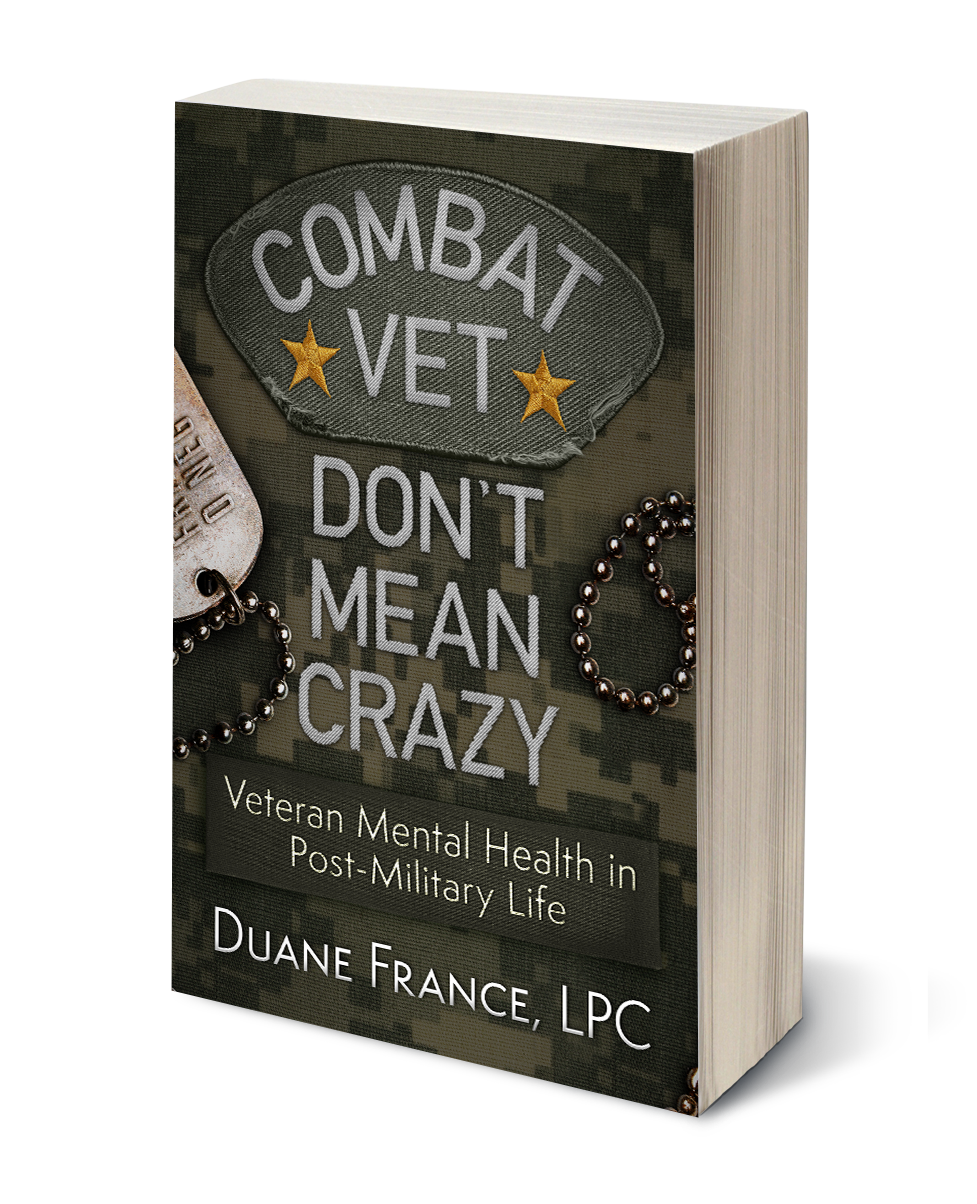 Want to learn more about veteran mental health? Check out the latest Head Space and Timing book,Combat Vet Don’t Mean Crazy: Veteran Mental Health in Post-Military Life
Want to learn more about veteran mental health? Check out the latest Head Space and Timing book,Combat Vet Don’t Mean Crazy: Veteran Mental Health in Post-Military Life. Check out what people are saying about it:
Overall ‘Combat Vet Don’t Mean Crazy’ is a very well written, thought-provoking book. As usual, SFC France did a fantastic job! Being a combat veteran myself who has served in both Iraq and Afghanistan, I feel there’s a lot of powerful information and tools in this book that you can put to use immediately – even as you’re reading this book. Definitely an excellent read on those days of rest and/or distress. – J.C.
